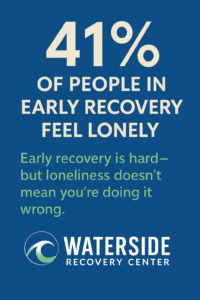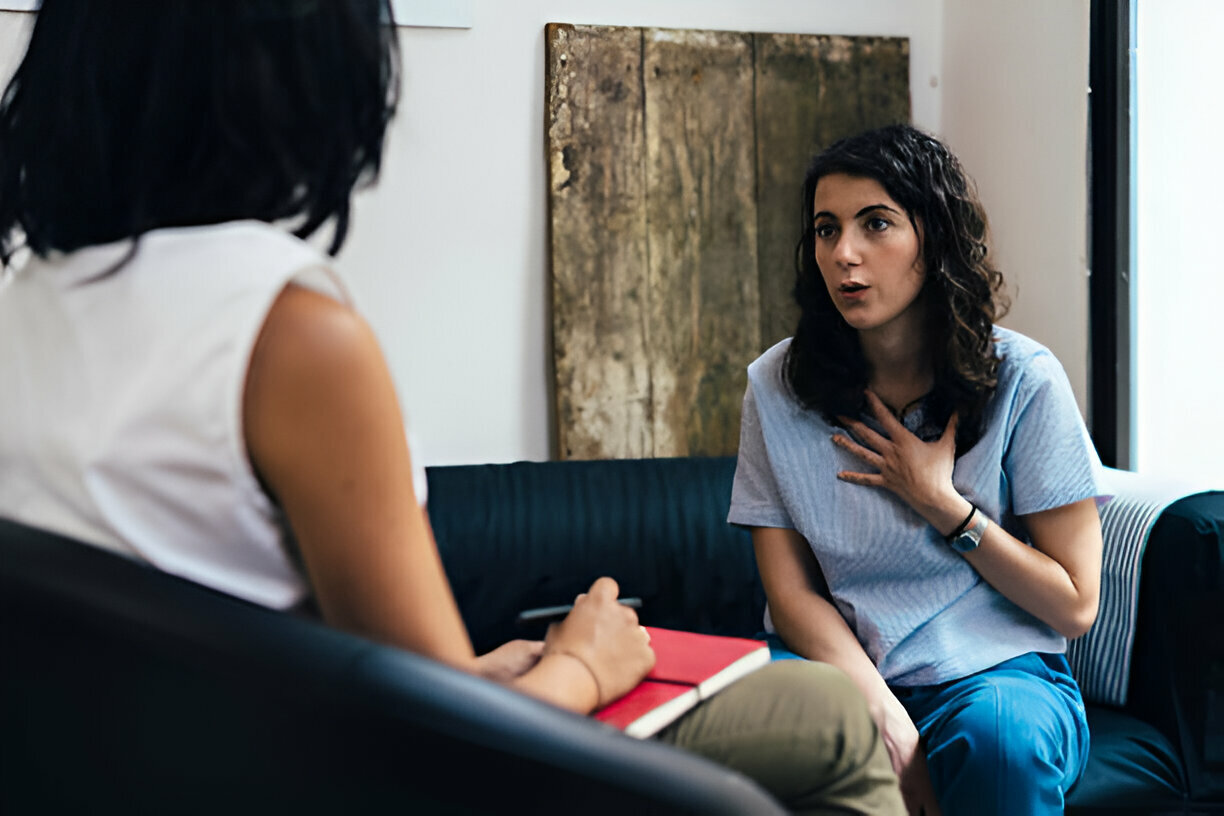If you’re newly sober and feeling painfully alone, I want you to hear this first: you’re not broken.
Loneliness in early recovery isn’t just common—it’s expected. You’ve just cut ties with a lifestyle, people, maybe even a whole identity that kept you company (even if they were hurting you). And now you’re staring at all this quiet. No texts. No late-night calls. No chaos.
Just you—and the echoes.
It’s heavy. It’s real. And it’s something I’ve lived through.
So this blog isn’t about pretending it’s easy. It’s about showing you how I and others like me began rebuilding a life worth staying sober for—without falling back into the same traps that nearly wrecked us.
1. Get Comfortable Being Uncomfortable (But Not Forever)
In early sobriety, the silence can be deafening. Suddenly you have time, space, and emotion—and no idea what to do with any of it.
Let yourself grieve. Let yourself feel weird. Just don’t assume it’ll feel like this forever.
Start with small, grounding routines:
- Take a walk first thing in the morning
- Drink water before coffee
- Make your bed (yes, seriously)
- Write one sentence in a notebook every night
These aren’t magic. They’re markers. They say, “I’m here. I’m still showing up.” That’s enough right now.
This stage won’t last. But it will shape what comes next.
2. Replace, Don’t Just Remove
Cutting people out is sometimes necessary. But isolation isn’t healing. And you can’t just remove without starting to replace.
Here’s what helped me reconnect without triggering relapse:
- Sober meetups or AA/NA meetings (even if I didn’t speak)
- Online recovery forums like Reddit’s r/stopdrinking or In The Rooms
- Volunteering (dogs, soup kitchens, anything that made me feel useful)
- Free community classes like yoga, meditation, or art therapy
You don’t have to make best friends on day one. Just practice being around people who get it. Let them remind you you’re not the only one.
Even saying “yes” to one invitation a week can help break the cycle.
3. Learn the Difference Between Safe and Familiar
Familiar doesn’t mean safe. And safe doesn’t always feel familiar.
I had to learn this the hard way. Some of the people who felt most “comfortable” for me were also the most tied to my using. And some of the people who felt awkward at first—group members, therapists—were actually the safest.
Ask yourself:
- Does this person want to see me stay sober?
- Can I be honest around them, or do I shrink?
- Do I leave conversations feeling lighter—or heavier?
It took time to recognize the difference. But once I did, it changed everything.
Choose people who lift, not weigh you down.
4. Start Talking Before You Feel Ready
I know. Vulnerability is terrifying. Especially if you’ve spent years numbing, masking, performing.
But isolation thrives in silence. And shame can’t survive being spoken.
So talk. One small truth at a time:
- “I’m not okay today.”
- “I’m scared I’ll slip.”
- “I don’t know how to be alone.”
- “I miss the people who used to be in my life, even if they weren’t healthy.”
Say it to a sponsor, a counselor, a peer at group, or even in a journal. Saying it out loud doesn’t make it worse. It makes it bearable.
If you’re not ready for words, try writing a letter to yourself and tucking it away. Or text a friend just to say you’re thinking of them. The point is to reach—just a little.

5. Don’t Confuse Alone With Unloved
Early sobriety can trick you into thinking you’ve been left behind. But most of the time? People just don’t know how to help. Or they’re waiting to see if this time is different.
Give them time. And give yourself grace.
You are not unloved. You are becoming. That takes time, boundaries, and new ways of being.
Here’s what I came to believe:
“The loneliness won’t kill you. But pretending you’re fine might.”
Stay real. Stay connected. Stay sober long enough to meet the people who are walking this same road beside you.
Eventually, you’ll be someone’s lifeline too.
FAQs About Loneliness in Early Sobriety
Q: Is it normal to feel lonelier after quitting opioids?
Yes. Opioids often mask emotional pain and artificially inflate social confidence. Removing them can leave you feeling raw, disconnected, and vulnerable. This is a natural—and temporary—part of healing.
Q: What should I do when I feel like isolating?
Start small. Reach out to one safe person. Go to a meeting, even if you sit in the back. Text someone from treatment. Watch a recovery video. You don’t have to socialize—you just have to stay connected.
Q: How do I make new friends in sobriety?
Join sober activities. Attend support groups. Volunteer. Try local recovery events or online meetings. Friendships won’t form overnight, but consistency helps people begin to trust—and that trust turns into connection.
Q: What if my old friends don’t support my sobriety?
That’s hard—but common. Try to surround yourself with people who respect your recovery, even if they’re not in it. You deserve friendships that honor your growth, not your past.
Q: Can Waterside help with sober support?
Yes. Our team at Waterside Recovery offers group therapy, peer mentorship, and community-building tools tailored for people rebuilding their lives after opioid addiction.
Need Someone to Walk With You?
Call (866) 671-8620 or visit our opioid addiction treatment page.
At Waterside Recovery, we’ve been there. We get how lonely this can feel. And we’re ready to help you build a recovery community that actually feels like home.


